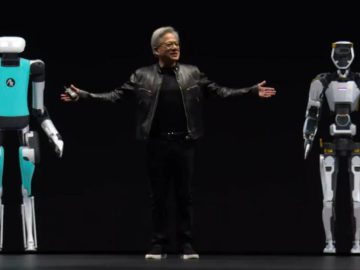Paul Buchheit, the man behind Gmail, has revealed, in an unexpected development, why Google may not have kept up in the much-discussed AI race. Buchheit, a Google employee who departed the firm in 2015, feels that the corporation’s priorities have switched from developing cutting-edge AI to preserving its market-dominance.
This information is released during a time when artificial intelligence is developing at a very quick pace. Businesses such as OpenAI, which recently released ChatGPT, a conversational AI tool, are making major progress and putting Google’s leadership in technology to the test.
The Search vs. AI Dilemma:
Buchheit thinks that the genuine potential of AI may be fundamentally at conflict with Google’s primary search business model. To make money, search engines rely on consumers clicking on links and advertisements. But strong AI might be able to respond to customer inquiries directly, avoiding the need to visit other websites and reducing ad income.
This contradiction was clarified by Buchheit in an episode of the Y Combinator Startup Podcast: “There’s always a temptation that if you make your results worse, people will actually click on more ads.” According to him, Google’s search monopoly encourages the firm to display links and advertisements to users rather than provide the clearest, most concise responses, which may hinder the development of AI that may rival ChatGPT and other similar tools.
This disagreement brings to light a significant conflict at Google. Although AI has the power to completely transform search experiences, it may also put the company’s main source of income at risk by immediately responding to user requests. This internal conflict could be the reason behind Google’s AI breakthroughs falling short of public expectations.
Reorganizing Priorities: A Missed Opportunity?
Buchheit goes on to suggest that Google’s 2015 restructure under Alphabet could be a game-changer. With this change, the emphasis shifted, with search now dominating AI research. The current CEO of Google, Sundar Pichai, took over as CEO at the time after Google founders Sergey Brin and Larry Page stepped down.
Although there is no denying that Google has made major advances in AI research, others contend that the business hasn’t fully realized the disruptive potential of this field. Buchheit gives the example of Google’s “AI Overviews” AI search function. This tool was eventually abandoned because of its tendency to produce inaccurate or nonsensical responses. It was meant to provide summaries in addition to search results.
This incident suggests that Google may find it difficult to incorporate genuinely disruptive AI features into its main products without compromising its current business plan.
Can Google Reclaim its AI Leadership?
Despite the fact that it may have fallen behind in some areas of AI development, Google still has a strong research team and an abundance of resources at its disposal. Certain observers maintain that Google can still take the lead in the AI space.
Creating substitute income models that work with increasingly potent AI capabilities could be one way to solve the problem. Additionally, Google can place more emphasis on encouraging an innovative culture that gives its AI research teams more creative freedom.
The discussion sparked by Buchheit’s remarks brings up an important query for Google: is it able to balance the revolutionary potential of AI with its fundamental economic model? If Google is able to get over this dispute and take back the lead in the AI revolution, only time will tell.




